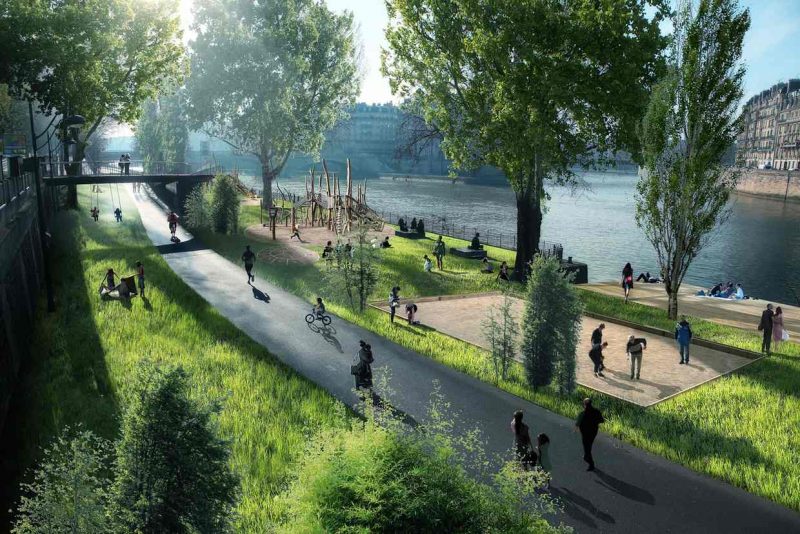Want to sponsor the Monday Roundup? You need exposure, we need your business, the community needs this information. It’s a win-win-win! Get in touch.
Welcome to the 34th week of the year. Here are the stories and tweets that caught our eyes in the past seven days…
Extremist views go mainstream: An announcer with the NFL Network displayed his deviant and violent tendencies when he said on Twitter that he wanted to hit people on bikes with his car. He later deleted the tweet saying he “didn’t mean to offend anyone.”
Great public spaces more important than ever: In these days of protest and sorrow around killings of black people on our streets, the Project for Public Spaces says we need to plan them a different way. There has never been a more important time to integrate transportation and public space advocates with Black Lives Matter and other social justice movements.
Much more than a bike ride: The ability of bicycles to help connect people to others and to themselves and the world around them never ceases to amaze me. This woman’s recap of a Sydney Night Ride weaves together racism, sexism, politics, and a huge plate of nachos.
Summer driving season = summer dying season: As gas prices come down, driving goes up and so do the vast societal costs that come with it. City Observatory breaks it down for us.
Paris is doing it right: Still angry after Friday’s fatal collision on Hawthorne, my heart swelled with joy reading about this plan in Paris to expand a ban on cars along the Seine River.
A really wild trail: Some first responders have voiced concerns over the Salmonberry Trail, a new coastal route in the works between Banks and Tillamook, because it would be difficult to reach in emergencies.
An outsider’s view: Stop patting yourself on the back for just one second and read what one visitor to Portland felt after biking here for a few days.
Bike making in the New Yorker: Regaining Detroit’s prominence as a bike manufacturing capitol is an exciting vision, but it’s proving to be as difficult as you might expect.
Get the feds out of transportation planning: The USDOT is so out of touch that even its “new” rule for measuring congestion keeps driving speeds as a key measure of success.
Advertisement
Bike share is public transit: This Portland Business Alliance story on the new walking and rolling bridge over I-405 at Flanders got one thing wrong. They say it won’t carry public transit when in fact it will likely serve more bike share trips than any other bridge in the city.
Who’s burdening who?: Get out your anti-bike bingo cars, you’re about to have a very fast game thanks to this classic rant from a Boston Herald columnist.
Moving fast to go slower: Boston is grabbing power to control its speed limits from the state DOT in order to reduce them citywide.
Parking cars is very expensive: City of Portland is about to spend $25 million to renovate one parking garage downtown. That’s a lot of money just to store people’s private vehicles.
Documentation gap: Sad and familiar story up in Seattle about the scope of streetcar track crashes: They hurt many people but without official data the city acts like it doesn’t happen.
Bikes in wilderness: A bill in congress that aims to open up some wilderness trails to bicycles gets a takedown in the form of an opinion column in High Country News. The author says it’s a “sham” that’s too heavily tipped in biking’s favor.
Big data a big deal for transpo planning: There’s a lot of talk about computerized data analytics in all fields these days — and transportation is among them. The problem is, like other parts of the system, the data winner will be motor vehicle usage. Since data in equals data out, there’s a big risk that human-centric transportation like biking and walking would get the short end of the stick.
Disabled and biking: Ever heard ADA activists utter concerns about new bike infrastructure? In London they are pushing back against that narrative with a new report that showed 15 percent of people with disabilities cycle for transport — nearly the same amount as people without disabilities.
— Jonathan Maus, (503) 706-8804 – jonathan@bikeportland.org
Our work is supported by subscribers. Please become one today. You can also make a one-time donation here.


